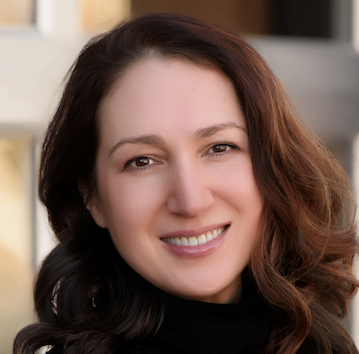Karina Angiletta
Name: Karina Angiletta
Position Running For: Kootenai Hospital District Trustee
Phone: (502) 376-6728
Address: 13867 W Hwy 53, Unit 100, Rathdrum, Idaho 83858, United States
Website:
Twitter:
Email: karina.angiletta@gmail.com
Tell us a little about yourself and your family, how long you have lived in the area and your occupation.
I was born and raised in Central Asia, in a region that was once part of the Soviet Union. Many in my family are medical doctors across various specialties, as well as engineers. At the age of 12, I discovered I had a natural talent for opera, blessed with a powerful voice that led me to pursue a career as an opera singer. Growing up in a predominantly Muslim country, my family stood out as Armenian and Russian Orthodox Christians. After the Soviet Union dissolved, we found ourselves part of a minority, and without the protections we once had.
When I was 19, my mother and I immigrated to the United States (25+ years ago). I dove into my passion for classical singing, earning a scholarship to Indiana University (Bloomington) and performing for a few years. However, wanting a practical backup plan, I decided to pivot and earned a nursing degree from a local community college. Becoming an American citizen opened up a world of freedoms and possibilities, and I discovered a deep love for travel. Over the next decade, I traveled extensively across all continents while balancing a full-time job and furthering my education, ultimately earning a PhD from UCSF, a leading medical university.
Throughout my career, I’ve primarily worked in emergency rooms across the United States, gaining invaluable experience. In 2017, following the loss of my mother to cancer, I developed a deep interest in longevity medicine, medical weight loss, and menopausal hormone replacement therapy—fields that ignited my curiosity and leveraged my expertise. Through this journey, I uncovered how mainstream medicine often falls short for our aging population, relying on superficial fixes like ineffective medications that can do more harm than good, instead of tackling the root causes to truly promote health and wellness.
After stepping away to embrace the profound privilege of raising my two children—now vibrant toddlers—I returned to the healthcare field with a deeper sense of purpose, inspired by the invaluable role of motherhood. Last year, I launched my own telemedicine practice, blending my passion for medicine with the flexibility to care for my family and patients on my own terms.
1. Do you have experience as an elected official and if so, what was your position, and how would you describe your voting record?
Growing up in a communist country left me with a deep skepticism and distrust of government, along with no interest in engaging in politics—even voting felt meaningless. But after moving to Idaho over four years ago, I was pleasantly surprised to encounter so many patriotic and passionate people who engage in politics with enthusiasm and make a real, positive difference in their community. Inspired by them, I registered as a Republican, and voted for the first time in my life this past November, casting my ballot for President Trump and my wonderful husband, Michael Angiletta, along with other Republican conservative individuals.
2. Please tell us about your activity as a Republican. Have you previously voted for candidates of other parties? If yes, explain.
I didn’t vote for any candidates other than Republicans this past November. Though I’m not politically active, I contribute by supporting conservative, deeply American causes. As a health practitioner and scientist, I’m dedicated to educating my patients and community members about the latest medical research, as well as their rights to informed consent and medical freedom.
3. What is the purpose of government?
Based on my experiences, the purpose of government should be to protect individual freedoms and empower its citizens, rather than control or suppress them as I witnessed growing up in a communist system. Having seen the contrast in Idaho, where engaged communities thrive, I believe the government should foster personal liberties—like medical freedom and informed consent—while supporting the pursuit of happiness and self-determination. As a health practitioner, I value a system that prioritizes education and choice, reflecting the conservative, deeply American ideals.
4. Describe why you are running for this particular office. What are your qualifications? What are your goals?
I am running for this position because I want to give back to the community and the wonderful Kootenai Hospital, which has been there for our family during the most significant moments, such as the birth of our two children. I deeply care about the hospital and am eager to contribute to its health and prosperity.
I am qualified for this position due to my extensive experience and education in healthcare. I have dedicated over 20 years to the field, working in various roles at some of the busiest and most prominent hospitals in the United States, including those in Chicago, San Jose, Honolulu, and San Francisco.
My academic journey culminated in earning a PhD at the University of San Francisco, one of the world’s leading health universities, where my research focused on the connection between thyroid health, selenium status, and obesity.
Equipped with a strong foundation to interpret complex medical literature, I will leverage this expertise to support the board, particularly during times of crisis. If elected, I will draw on this expertise and be guided by a scientific foundation, as well as the deeply American principles of medical freedom and informed consent, to support and strengthen our community, inspiring and equipping the board with a strong scientific basis for making challenging decisions.
5. Describe experiences where you are or have been engaged such as non-profit organizations, clubs, churches, boards, commissions, etc., where you have been of service to others.
Throughout my career in the healthcare field, I have volunteered at various homeless shelters, addiction clinics (as part of my education and training), and in numerous Christian Orthodox churches across the country.
6. Do you describe yourself as fiscally conservative? Please, elaborate.
Growing up in a communist system where resources were tightly controlled and often mismanaged, I developed a strong appreciation for efficiency and personal responsibility when it comes to finances. While I wouldn’t call myself politically active or rigidly ideological, I do lean toward fiscal conservatism, believing governments should live within their means, curb wasteful spending, and promote policies that reward individual effort. My own journey reflects this mindset: I worked multiple jobs to fund over 15 years of college, as well as always striving for best grades to secure scholarships, and I graduated without a single student loan. Over the 25 years in US, I even bought my first, second, and third cars outright with cash, waiting until I’d saved enough to avoid debt entirely. As a health practitioner running my own telemedicine practice, I apply the same principles, keeping spending to a minimum.
7. Do you consider yourself as socially conservative? Please elaborate.
Absolutely, I consider myself socially conservative. My views are shaped by both my upbringing in a traditional Armenian and Russian Orthodox Christian family and my experiences as a health practitioner. I believe in preserving values that strengthen families and communities, like commitment and personal responsibility. I’m troubled by how casual attitudes toward promiscuity are often promoted to younger generations, pushing a narrative that undermines the importance of stable relationships. I see promiscuity as particularly harmful to women—not just emotionally, but also physically, given the risks of unintended pregnancies, STDs, and the hormonal toll it can take. I also strongly believe that children should be protected from accessing sexually explicit materials, as early exposure can distort their understanding of relationships, harm their emotional development, and increase vulnerability to exploitation—concerns backed by both my faith and my professional insights. Living in Idaho has only deepened my appreciation for these principles, surrounded by people who prioritize faith, family, and mutual support.
8. Describe which party platform best aligns with your positions on public policy (Republican, Democrat, Libertarian or Constitutional Party) and where do you disagree with that platform.
Both the Republican Party and the Constitutional Party share core values that align with my personal beliefs, particularly in the areas of limited government and individual rights. Like the Republican Party, I believe in a free-market economy, lower taxes, and reducing government spending to ensure financial stability. Additionally, I resonate with the Constitutional Party's commitment to upholding the U.S. Constitution, ensuring that the federal government remains within its defined limits, and prioritizing states' rights. Both platforms emphasize the importance of protecting personal freedoms, supporting traditional values, and defending the Second Amendment.
However, where I might differ with some in the Republican Party is in areas such as foreign interventionism and the role of the federal government in certain domestic policies. I believe the US should avoid participating in foreign conflicts. When it comes to healthcare, I’ve grown to question the dominance of corporate medicine and Big Pharma, which often prioritize profit over patient well-being. Instead, I champion the approach of locally owned, boutique medical practices that offer cash-based, specialized care. These community-focused doctors provide tailored, high-quality services that directly support the unique needs of their local populations, proving that healthcare can thrive outside the corporate mold without compromising access or care.
Dr. Elisabeth Rosenthal, a physician, addresses the issue of how the American healthcare system has become a money-making machine and offers solutions for improvement in her eye-opening book, An American Sickness: How Healthcare Became Big Business and How You Can Take It Back.
These shared and differing principles reflect my vision for a government that is focused on the well-being of its citizens while adhering to the foundational values of our nation.
9. Do you have any history of tax liens, criminal record, bankruptcy or conflict of interest that may affect your future decisions or desirability to be voted into office?
No, none.
10. Describe how you will make yourself available to your constituents and vote as their representative with FORTITUDE, adhering to the values and answers you have stated above.
During the COVID pandemic, across the US, I observed reactions from government healthcare agencies and institutions, leading hospitals, and even small medical practices that made me question the widespread panic and apparent lack of critical thinking among many of our leaders. In times of crisis, we need individuals in leadership and board members who can assess the quality of scientific evidence, question the dominant response, reevaluate data, and adjust strategies to uphold the core American principles of medical freedom and informed consent.


